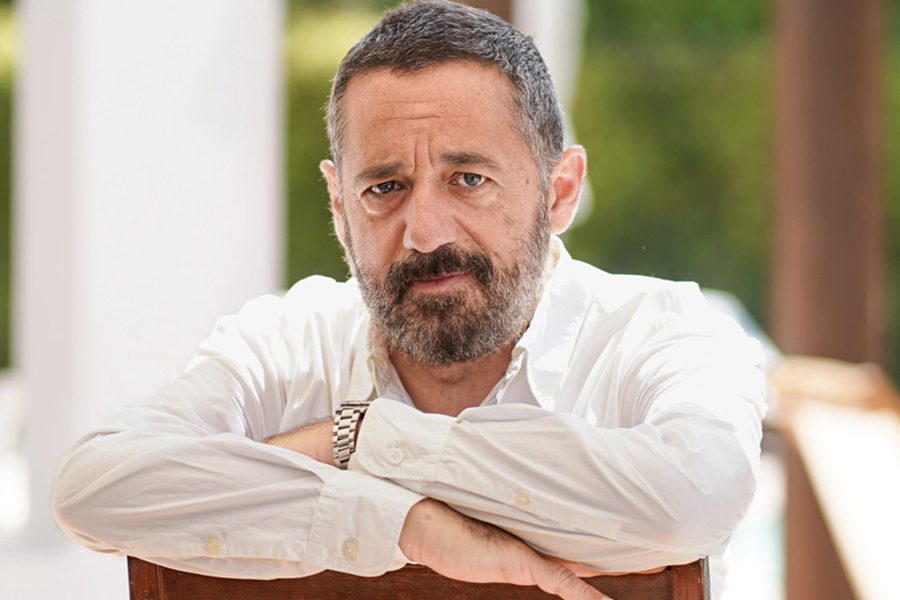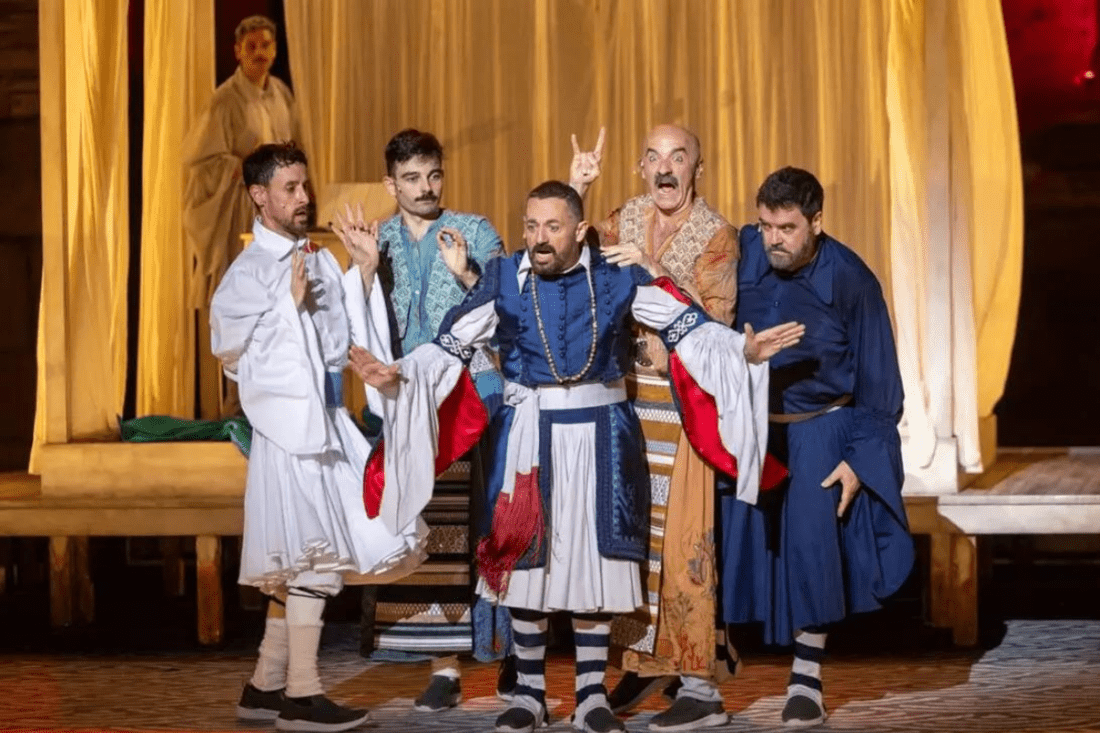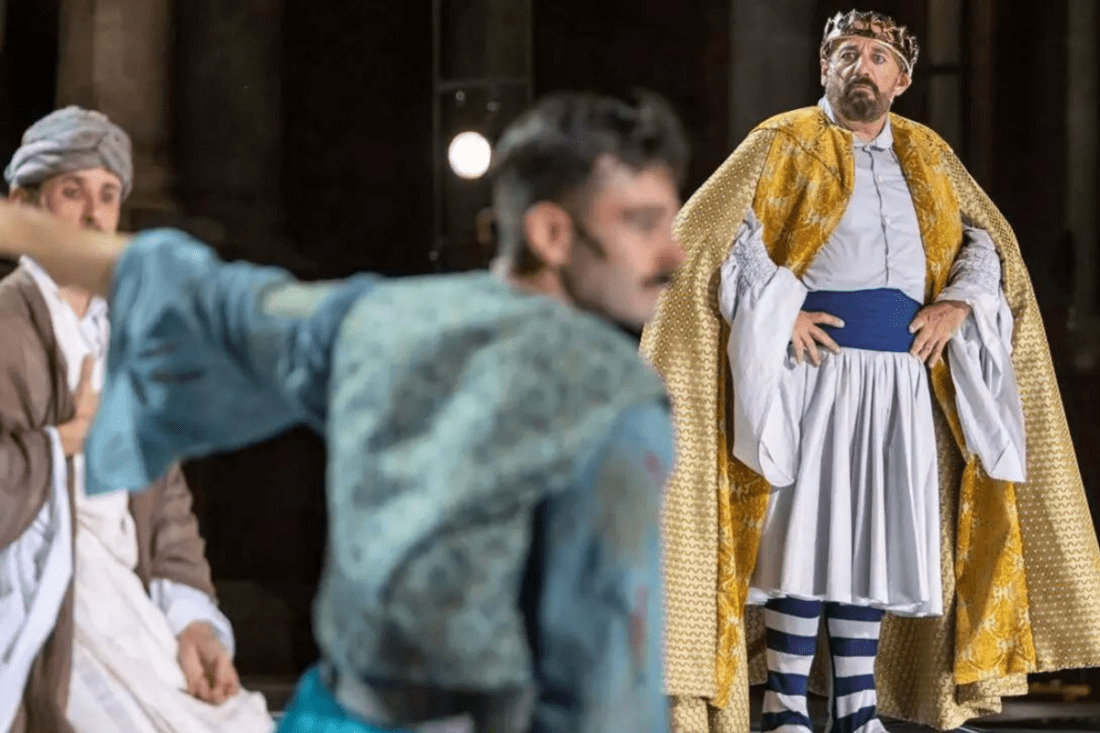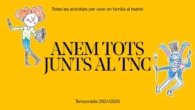Pepón Nieto: “Comedy helps us overcome our fears”
‘To err is human’ or ‘to err is human’ are two popular forms of a Latin expression, which every person has uttered on one or more occasions throughout life. From Latin, error, –oristhe word error denotes a misguided or mistaken action, as well as a mistaken concept or false judgment. In today’s society there is an incisive message of the pursuit of success that severely condemns the decision, but… has this always been the case throughout history? What social reflection did the great classics convey about the act of making a mistake?
After the success of the public and critics in its premiere last August in the Merida International Classical Theater Festivalarrives in Barcelona The comedy of errorsa play, directed by Andres Limawhere messiness and popular humor combine to create pure stage entertainment. Pepón Nieto heads the cast, with Fernando Soto, Antonio Pagudo, Avelino Piedad, Rulo Pardo i Esteban Garridoof a show that claims the beauty of equivocation and the freedom to be, based on acting. The production can be seen until November 3 at the Goya Theatre.

‘La comedia de los errores’ or the festival of confusion
The comedy of errors is the play with which William Shakespeare is presented in society. At the time, the English bard was only 25 years old and had arrived in London to work at The Theater company as a transpointer. At the end of the 15th century, comedy in England still drew heavily from medieval theater and a strong religious imagination. With the aim of entertaining the public, with a dramatic formula that combined a great mastery of stage language, sharpness and rhythm, Shakespeare premiered this comedy, inspired by the work of Plautus of the second century BC. C., the twins.
In the plot, two pairs of twins, identical in name and appearance, turn the city of Ephesus into a dislocated stage where identities waver and loves are tested. The shortest Shakespearean comedy is a veritable vaudeville that squeezes ambiguity to the max, to generate impossible situations from start to finish where no one is talking to who they think they are talking to.
We talk to the actor and producer Pepón Nieto about the creation of this show and the meaning of laughter and error in life.

Teatre Barcelona: In addition to being an actor, you are the producer of this show. How did you come up with the idea of tackling a version of The Comedy of Errors? Why this title and why Shakespeare?
Pepón Nieto: It’s been more than 10 years, and this is the fourth time we’ve done it in co-production with the Merida International Classical Theater Festival. This time we wanted to make a comedy, so that the function would have a long run and then be able to tour. In addition, we like Shakespeare very much. He is a wonder and is always a source to turn to. This play is hilarious, it’s like a mess of vaudeville. The first proposal we had was that we wanted to have a party and this proposal allowed us to bring it towards the holiday.
“I want people to leave the theater wanting to dance and have fun”
You are six actors, but each of you plays several characters in a play, moreover, which plays on the equivocation constantly. How has it been to prepare this show from the point of view of interpretation?
It was an unusual process, because in the previous workshops we did with Andrés, many things emerged: above all, a common language that made it clear to us, from the beginning of the rehearsals, where to go and from what place we wanted to explain it. It was always from a very playful and festive approach. From the first meeting the proposal was: I want to have a party, I want people to leave the theater wanting to dance and have fun. This also made us approach the work from a very festive place and bring ideas from farce. Rehearsals were very intense, because the show, even if it looks very crazy, works like clockwork and we know exactly where we are at every moment. Andrés measured everything very carefully. We have done very intense work, but always in a fun and festive way.

Director Andrés Lima has stated that in this work both error and ambiguity are appreciated in a healthy way. We live in a society that penalizes very severely the error, the decision, and that continuously conveys the message of seeking success through perfection. Why hasn’t the human being just learned that man is fallible by nature?
I don’t know, but it’s terrible because it feels like a mistake is a failure, and I think we have the right to make mistakes and do it as many times as we want and at any age. We are not perfect and mistakes, like the fortuitous, the strange, the unexpected, the mistake, make up the salt of life. It makes things not monolithic. It’s good to be wrong, admit mistakes, change your mind. To consider that I used to think this way and life has made me think in a different way and to admit that I was wrong and nothing happens. This makes us healthier and freer citizens, and not being completely subject and cornered in what is expected of us, not to fail anyone. It’s good to fail and there’s always time to get back up.
“A sense of humor is fundamental; it’s what makes life happen”
What meaning has error had in your life?
I have made mistakes continuously and at every level. In personal relationships, in friendships. I have no problem apologizing. I’m not proud of that. I make mistakes very easily and just as easily as I make mistakes I try to correct them and not attach so much importance to them, because you have to continue living.
One of the most cathartic ways for man to face himself is to do it through humor. What really lies behind the laughter in this comedy?
A sense of humor is essential; it’s what makes life happen. We need to laugh continuously, disconnect. Laughing at ourselves first and then at what happens around us. With humor, you transform yourself and transform things. I heard someone say the other day that the opposite of comedy isn’t drama, it’s fear. Comedy helps us overcome our fears, exorcise them and remove them from our lives. In the show, laughter is the vehicle, the way to tell the story. Laughter already turns into an absurd situation where the viewer does not know what will come next. It’s the hook and it’s the ground.
More information, images and tickets at:








